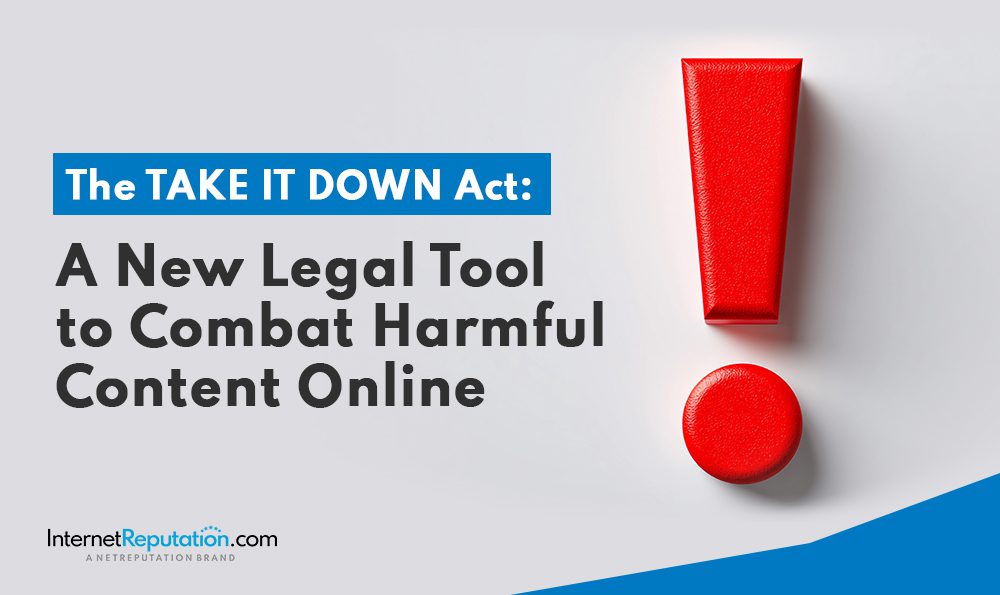10 Reputation Management Statistics You Need to Know

Reputation management is crucial in today’s digital landscape, where online presence and perception can greatly impact businesses and individuals. But what exactly is reputation management, and why is it so important? Let’s explore these questions and the top 10 reputation management statistics that shed light on their significance.
Reputation management refers to actively monitoring, influencing, and managing a brand’s or individual’s public perception across various online platforms. It involves taking strategic actions to shape and maintain a positive online reputation management market while addressing any negative feedback or issues that may arise.
Maintaining a positive online reputation is essential because it influences consumer perception, trust, and business success. Negative reviews or damaging content can tarnish a brand’s image, hinder customer acquisition, and impact revenue. On the other hand, a strong and positive online reputation can attract new customers, improve customer loyalty, and influence employee recruitment.
To better understand the importance of online reputation management statistics, let’s dive into the top 10 reputation management statistics:
- The Impact of Online Reviews
- Influence of Social Media on Reputation
- The Power of Word-of-Mouth
- The Importance of Responding to Reviews
- The Role of Online Reputation in Consumer Decision Making
- The Effect of Negative Reviews on Business
- The Long-lasting Impact of Reputation Damage
- The Influence of Reputation on Employee Recruitment
- The Significance of Monitoring Online Reputation
- The Benefits of Proactive Reputation Management
By knowing and leveraging these statistics, businesses, and individuals can navigate the digital landscape more effectively and take proactive measures to improve and manage their online reputation.
What is Reputation Management?
Reputation management is the practice of monitoring, influencing, and maintaining a company or individual’s public perception. It involves actively monitoring online reviews, social media mentions, and other feedback forms to ensure a positive reputation. By promptly addressing negative comments or reviews, engaging with customers, and actively managing a company’s online reputation accounts, reputation management aims to shape public opinion and maintain a strong brand image.
Why is Reputation Management Important?
Reputation management is important because it can significantly impact the success and growth of a business or individual. Maintaining a positive reputation builds trust, credibility, and customer loyalty. A strong reputation helps attract new customers, retain existing ones, and foster a positive brand image.
Top 10 Reputation Management Statistics:
Get ready to be amazed by the top 10 reputation management statistics that can reshape how you perceive your online image.
1. The Impact of Online Reviews
Online reviews have a significant impact on businesses. Customers rely heavily on the opinions of others when making purchasing decisions. According to 10 reputation management statistics, 92% of consumers read online reviews before purchasing. Positive reviews can boost a company’s reputation and attract new customers. On the other hand, negative reviews can severely damage a business, as 94% of customers say they have avoided a company based on negative online review statistics.
The influence of online reviews goes beyond just attracting or deterring customers. They also play a role in search engine rankings. Approximately 13% of Google’s top search results and ranking factors are based on review signals, such as the total number and average rating of reviews. This means businesses with positive reviews are more likely to appear higher in the search engines’ results, increasing their online visibility and credibility.
Reputation management is crucial in addressing and responding to online business reviews. Statistics show that 97% of customers read a business’s response to reviews, making it essential for companies to engage with their customers and address their concerns. Businesses can enhance their reputation and cultivate customer trust by actively managing online reviews and providing thoughtful responses.
2. Influence of Social Media on Reputation
The influence of social media on reputation can have a significant impact on businesses and individuals. Here are some key points to consider:
- Social media reach: Social media platforms have a vast audience, with billions of users worldwide. Any information about a brand or individual can spread rapidly through shares, likes, and comments.
- Virality: Content on social media can quickly go viral, reaching many people within a short period. Positive or negative stories can have a lasting impact on reputation.
- Immediate feedback: Social media provides a platform for customers to share their experiences and opinions in real time. Positive reviews can enhance reputation, while negative feedback can damage it.
- Brand perception: How a brand presents itself on social media can shape the perception of its reputation. Consistent messaging, engaging content, and transparency can cultivate a positive image.
- Crisis management: Social media can magnify any brand’s crises or controversies. Effective management and timely responses are crucial to mitigate reputation damage.
3. The Power of Word-of-Mouth
The power of word-of-mouth cannot be underestimated when it comes to reputation management. Positive or negative word-of-mouth can greatly impact the perception of a business or individual. Here are some key points to consider:
- Spreads quickly: People are more likely to share their experiences with others, whether they are satisfied customers or dissatisfied ones.
- Influential: People trust recommendations from friends, family, and strangers. Hearing positive reviews can sway their decisions in choosing a product or service.
- Can have a long-lasting impact: Once a reputation is tarnished, it can be difficult to recover. Negative experiences shared through word-of-mouth can harm a person or business for years.
- Can be amplified through social media: With the rise of social media platforms, word-of-mouth spreads even faster and reaches a wider audience. A single negative review or positive recommendation can have a ripple effect.
- Can lead to customer loyalty: When customers have positive experiences and share them with others, it can lead to repeat business and a loyal customer base.
4. The Importance of Responding to Reviews
The importance of responding to reviews cannot be understated. Here are some reasons why:
- Customer satisfaction: Responding to reviews shows you value your customers and their feedback. It allows you to acknowledge their concerns and thank them for their positive feedback.
- Reputation management: Responding to positive and negative reviews demonstrates to potential customers that you are engaged and committed to providing excellent customer service. It helps build trust and credibility for your brand.
- Online visibility: Responding to reviews, particularly negative ones, shows your commitment to resolving issues and improving customer experiences. This can help mitigate the impact of negative reviews and maintain a positive online reputation.
- Customer retention: Addressing customer concerns promptly and satisfactorily can help retain existing customers. It shows that you value their business and will go the extra mile to ensure their satisfaction.
5. The Role of Online Reputation in Consumer Decision Making
Online reputation plays a crucial role in consumer decision-making. Consumers today heavily rely on reviews and feedback from other customers before making a purchase. According to a study, 92% of consumers read online reviews, and 88% say customers and consumers trust online reviews as much as personal recommendations. This emphasizes the significant impact online reputation has on consumer choices.
A positive online reputation can enhance a brand’s credibility and attract new customers. A study found that businesses with a four-star rating or above on review sites saw an increase in revenue by 25%-30%. On the other hand, negative reviews can deter potential customers, with 86% being less likely to choose a local business with negative reviews.
6. The Effect of Negative Reviews on Business
When it comes to a business, the effect of negative reviews cannot be underestimated. There are several important points to consider:
- Negative impact on reputation: Negative reviews significantly impact a business’s reputation since potential customers often rely on reviews when making decisions.
- Loss of customers: Negative reviews can deter potential customers from choosing a particular business, resulting in a loss of sales and revenue.
- Reduced trust and credibility: Negative reviews erode trust and credibility in a business, making it harder to attract new customers and retain existing ones.
- Damage to brand image: Negative reviews can tarnish a business’s image, affecting its long-term success and market positioning.
To mitigate the effect of negative reviews, businesses should:
- Respond promptly and professionally: Businesses need to address negative reviews promptly and professionally, showing that they value their customers and are willing to resolve any issues.
- Learn from feedback: Negative reviews can provide valuable insights for improving products, services, and customer experience.
- Encourage positive reviews: Actively engaging with satisfied customers and encouraging them to leave positive reviews can help counterbalance the impact of negative reviews.
- Monitor online reputation: Regularly monitoring online platforms and review sites allows businesses to quickly identify and address negative reviews.
7. The Long-lasting Impact of Reputation Damage
The long-lasting impact of reputation damage can have severe consequences for a business.
Negative online reviews can tarnish a company’s reputation and have a lasting impact on its image.
Customers often trust online reviews when purchasing, and negative reviews can deter potential customers.
A damaged or bad reputation can lead to a loss of customers and revenue for a business.
Reputation damage can also result in declining market value, employee morale, and recruitment difficulties.
Businesses must respond promptly and effectively to negative reviews to mitigate the long-term effects on their reputation.
Monitoring online reputation is crucial to identify and address reputation damage early on.
Companies can benefit from proactive reputation management strategies to prevent and address reputation damage.
A strong and positive online reputation is essential for building customer trust and credibility.
Investing in reputation management can help local businesses maintain a positive image and thrive in the long run.
8. The Influence of Reputation on Employee Recruitment
Reputation plays a significant role in employee recruitment. A strong reputation can attract highly talented individuals to an organization. Companies with a positive reputation are seen as desirable places to work, which can result in a larger pool of qualified candidates to choose from. Research shows that an organization’s reputation is a major factor for job seekers when evaluating potential employers.
According to studies, 78% of job seekers consider the employer’s reputation before applying. A positive reputation can also help in retaining top talent within the organization. Employees are more likely to stay with a well-regarded company with a positive image.
On the other hand, a negative reputation can deter potential candidates from applying for positions, leading to difficulties in finding suitable candidates. 86% of job seekers say they would not apply for a job at a company with a negative reputation. Negative reviews or news coverage can significantly impact a company’s ability to attract top talent.
Therefore, organizations must prioritize their reputation management efforts, as it directly influences employee recruitment. By maintaining a positive image and responding to any negative feedback or reviews, companies can enhance their chances of attracting and retaining talented individuals for their workforce.
9. The Significance of Monitoring Online Reputation
The significance of monitoring online reputation cannot be overstated. Businesses and individuals must stay informed about what is being said and shared about them on the internet. Here are some important reasons why monitoring online reputation is essential:
- Protecting brand image: Monitoring online reputation allows businesses to identify and address negative content or reviews that could damage their brand image. By promptly addressing these issues, businesses can protect their reputation and maintain a positive perception among their target audience.
- Building trust with customers: Online reputation directly influences consumer trust. Monitoring allows businesses to gauge customer sentiment and respond accordingly, which helps build trust and credibility.
- Managing crises: Online reputation monitoring enables organizations to identify and manage potential crises quickly. By staying on top of any negative information or rumors, businesses can respond effectively and minimize the impact on their reputation.
- Staying ahead of competitors: Monitoring online reputation provides valuable insights into how customers perceive competitors. This knowledge can help businesses identify areas where they can outshine their competition and improve their overall reputation.
To effectively monitor online reputation, businesses should consider using online reputation management tools, actively engage with customers on social media platforms, regularly check review websites and forums, and respond promptly to any feedback or inquiries. By proactively monitoring and managing online reputation, businesses can safeguard their brand image, build customer trust, and stay ahead of the competition.
10. The Benefits of Proactive Reputation Management
To proactively manage your brand’s reputation well, monitoring and responding to positive online reviews and feedback regularly is essential. This proactive approach enhances brand credibility and trustworthiness, improves customer loyalty and retention, and increases customer acquisition and sales. It also boosts the overall brand reputation and image, reducing negative online reviews’ impact. Additionally, proactive reputation management enhances online visibility and search engine rankings.
Moreover, consistently implementing effective communication strategies and delivering exceptional customer service can create a positive brand perception among consumers. This approach improves customer satisfaction and advocacy, helps build strong customer relationships, and protects the brand from reputation crises.
Therefore, engaging with customers on social media platforms and promptly addressing issues is crucial. These proactive reputation management efforts have numerous benefits, including enhancing brand credibility and trustworthiness, improving customer loyalty and retention, and increasing customer acquisition and sales.
How to Improve and Manage Your Online Reputation?
To improve and manage your online reputation, you must proactively monitor and address negative content or reviews. Regularly searching for your name or brand on online search engines will help you stay informed about internet users and what is being said.
- It is important to respond promptly and professionally to any negative comments or reviews, addressing concerns and offering solutions.
- Encouraging satisfied customers to leave positive reviews on platforms such as Google or social media can also help improve your online reputation.
- Monitor and engage with feedback on social media, thanking customers for positive comments and addressing any issues raised.
- Implementing an online reputation management tool or service can streamline monitoring and responses.
- Creating and maintaining a strong online presence through social media, blogs, and other platforms that showcase your expertise and positive contributions is essential.
- Providing excellent online and offline customer service is crucial, as positive experiences can help counteract any negative feedback.
- Regularly updating and optimizing your website with high-quality content that reflects your brand positively is also important.
- Collaborating with influencers or industry experts can enhance your reputation and reach a wider audience.
- Continuously monitoring and adapting your online reputation strategy based on feedback and results is necessary for ongoing improvement.



